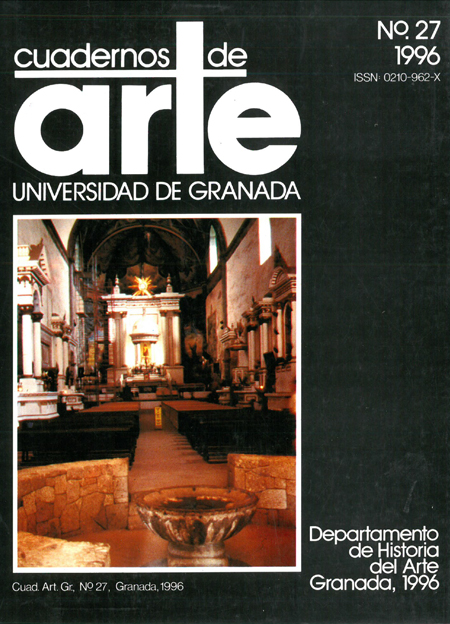La concepción teórica de la idea de ciudad en la Ilustración española: la Policía urbana y los nuevos fundamentos de orden, comodidad y aspecto público
Mots-clés :
Ordenanzas municipales, Política urbanística, Ordenación urbana, Historia urbana, Ilustración, España, S. 18Résumé
Derivada de la concepción general de la Policía como ciencia camera! encargada de fundamentar la existencia del Estado absoluto en el logro de la felicidad humana y, más exactamente, en la implantación del bienestar público, su transpolación dentro de la organización social, surge a lo largo de la Ilustración española una nueva institución política de orden local, la Policía urbana, que pretende alcanzar el buen gobierno y el bienestar de los habitantes de la ciudad mediante la promulgación de un variado conjunto de medidas que hagan factible la mejora de las condiciones de vida urbana. Especial atención dedicará la nueva institución municipal a aquellos aspectos relacionados tanto con la imposición de una mejor ordenación de la actividad ciudadana como con el desarrollo de una primera propuesta de confort urbano y el establecimiento de un mayor ornato público en las calles de la ciudad del Setecientos. Dentro de este contexto, se produce la aparición de una serie de nuevos conceptos urbanos, conocidos en el vocabulario policial de la época con términos tales como orden, comodidad y aspecto público.Téléchargements
Les données relatives au téléchargement ne sont pas encore disponibles.
Téléchargements
Publié-e
1996-11-01
Comment citer
Anguita Cantero, R. (1996). La concepción teórica de la idea de ciudad en la Ilustración española: la Policía urbana y los nuevos fundamentos de orden, comodidad y aspecto público. Cuadernos De Arte De La Universidad De Granada, 27, 105–120. Consulté à l’adresse https://revistaseug.ugr.es/index.php/caug/article/view/10795
Numéro
Rubrique
Estudios
Licence
Los autores que publican en esta revista están de acuerdo con los siguientes términos:- Los autores conservan los derechos de autor y garantizan a la revista el derecho de ser la primera publicación del trabajo al igual que ser licenciado bajo una licencia Creative Commons que permite a otros compartir el trabajo con un reconocimiento de la autoría del trabajo y la cita de la fuente original, con un uso no comercial y siempre que no se hagan obras derivadas.
- Los autores pueden establecer por separado acuerdos adicionales para la distribución no exclusiva de la versión de la obra publicada en la revista (por ejemplo, situarlo en un repositorio institucional o publicarlo en un libro), con un reconocimiento de su publicación inicial en esta revista.
- Se permite y se anima a los autores a difundir sus trabajos electrónicamente (por ejemplo, en repositorios institucionales o en su propio sitio web) antes y durante el proceso de envío, ya que puede dar lugar a intercambios productivos, así como a una citación más temprana y mayor de los trabajos publicados (Véase The Effect of Open Access) (en inglés).


 ISSN-e: 2445-4567
ISSN-e: 2445-4567








